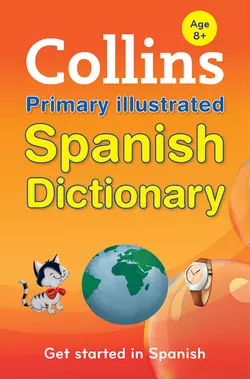Collins Primary Dictionaries

Collins Dictionaries
Тип: электронная книга
Жанр: Современная зарубежная литература
Язык: на испанском языке
Стоимость: 981.79 ₽
Статус: В продаже
Издательство: HarperCollins
Дата публикации: 17.04.2024
Отзывы: Пока нет Добавить отзыв
О книге: Optimised for colour tablets. The images in this e-book are not suitable for black and white e-ink devices.Collins Primary Illustrated Spanish Dictionary is ideal for young learners of Spanish as their first REAL dictionary. It offers detailed coverage of key Spanish and English vocabulary in a highly attractive, colourful and easy-to-use format.Collins Primary Illustrated Spanish Dictionary has been designed specifically to meet the needs of children learning Spanish, particularly in primary school. It has also been written to give support to teachers who may be faced with the challenge of teaching Spanish to young children for the first time.• Core vocabulary is covered in detail with simple examples to illustrate usage and key phrases highlighted.• Colourful topic pages in the middle of the dictionary give additional vocabulary for pupils and teachers.• A clear, colourful layout and carefully selected illustrations make it fun, quick and easy to find what you are looking for.Other titles in the Collins Spanish Dictionary range include the Collins Easy Learning Spanish Dictionary, Collins Gem Spanish School Dictionary and Collins Spanish School Dictionary – providing all the support you need when learning Spanish.